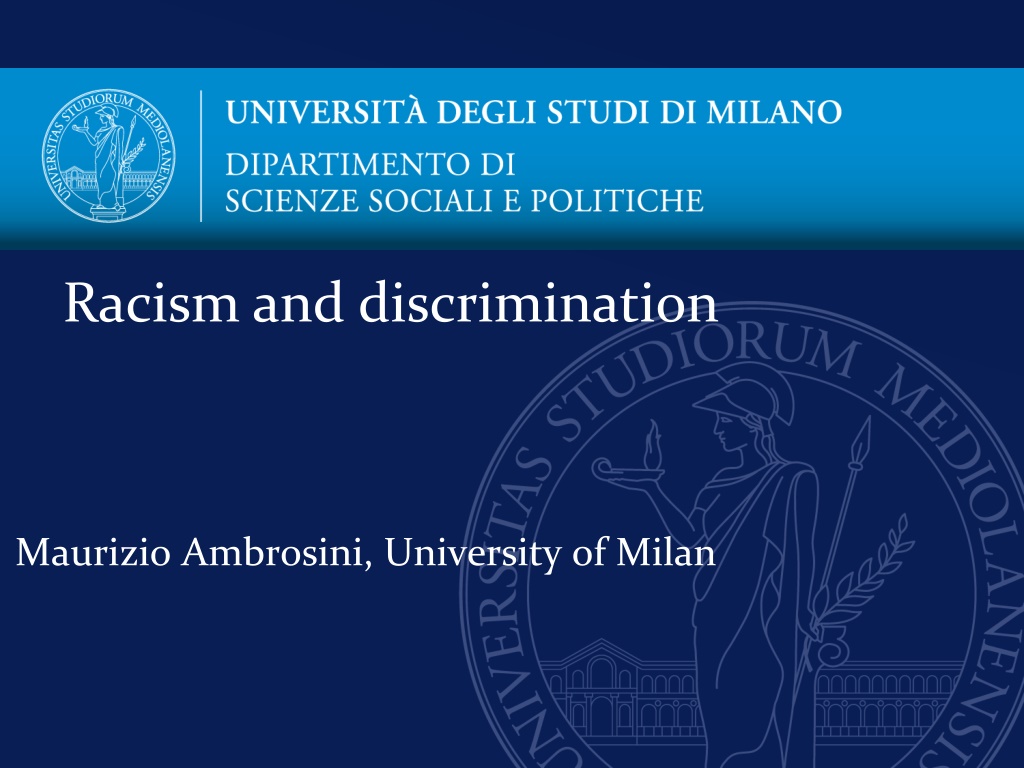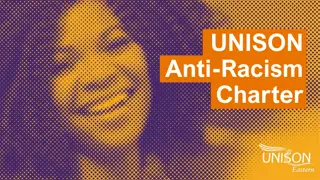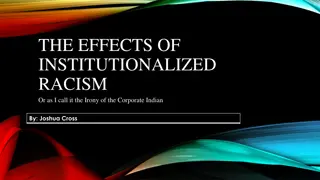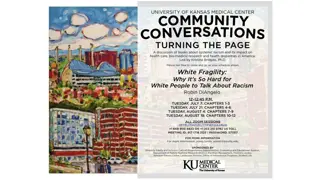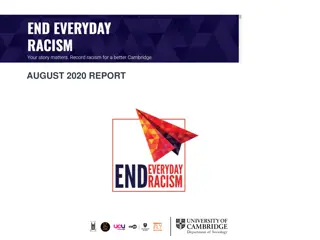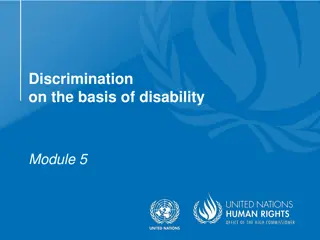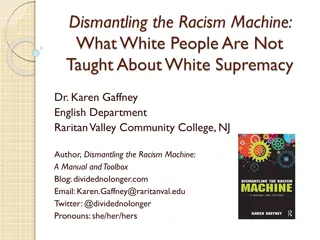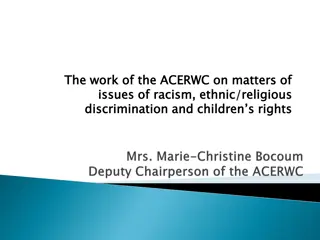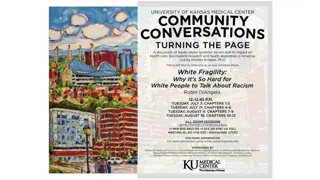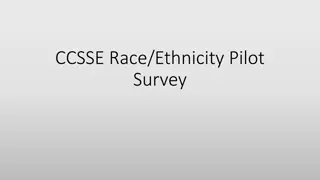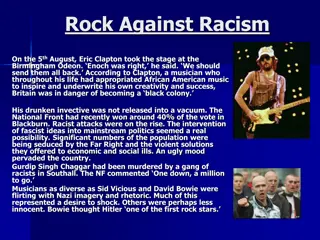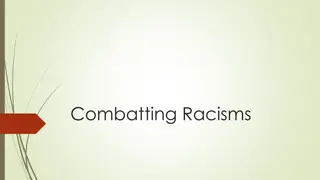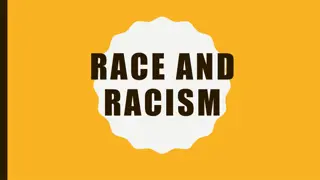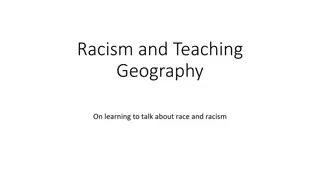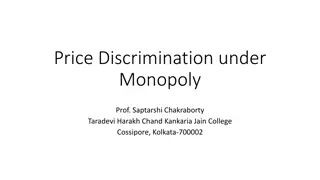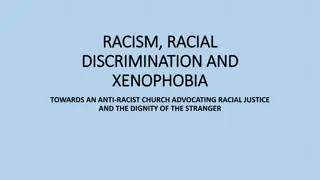Understanding Different Forms of Racism and Discrimination
Knowledge development through classification can lead to stereotypes and prejudices, which have manifested in various forms of racism over time, from classical and scientific racism to modern cultural and popular racism. Discrimination, distinct from racism, involves unequal treatment based on physical appearance, nationality, opinions, or religion.
Uploaded on Nov 16, 2024 | 0 Views
Download Presentation

Please find below an Image/Link to download the presentation.
The content on the website is provided AS IS for your information and personal use only. It may not be sold, licensed, or shared on other websites without obtaining consent from the author. Download presentation by click this link. If you encounter any issues during the download, it is possible that the publisher has removed the file from their server.
E N D
Presentation Transcript
Racism and discrimination Maurizio Ambrosini, University of Milan
From classification to prejudice Knowledge develops abstracting, generalizing, classifying objects intocategories In general this is a physiological activity, enabling us to spare timeand energies But, applied to groups of human being, operating on the basis of such indicators as the physical appearance, nationality or religion, this attitude fosters stereotypes and prejudice Stereotype: a rigid, standardized, often stigmatizing representation, collectively applied to a human group An economy of the mind, becoming an avarice of the heart (Mazzara)
Classical or scientific racism classical racism claimed scientific, biological basis. It was connected to the Enlightenment, to the birth of modern science and to the European colonial expansion. Naturalization of inequalities and supremacy It offered powerful cultural tools to the justification of the domination over other people and nations, at the time of colonial expansion of Western States It was completely discredited after the Nazi experience and the Second World War
Cultural or differentiating racism It is the modern form of racism It derives its arguments from its enemies It preaches the respect for people s cultures But it affirms the necessity to preserve integrity and uniqueness of the different national cultures So, each culture is legitimized in its own territory Culture is treated as nature: it is not possible to change or mix it with other cultures Hybridity is condemned ( mixophoby )
Popular racism It is a low cost form of distinction , accessible to everyone It gives a meaning of superiority on the only basis of national belonging ( masters in hour home ) It fosters scapegoating processes It answers to the fear of social devaluation It answers to the need of asserting social distances from people perceived as inferior
Discrimination It refers to actual behaviours: the different or unequal treatment of people on the basis of their physical appearance, national origin, opinions or religion So, it can be dissociated from racism: there are forms of discrimination without racism (for instance, in the institutional setting), and forms of prejudice without actual discrimination
Types of discrimination 1) direct, explicit discrimination 2) indirect or implicit discrimination 3) institutional discrimination 4) statistical discrimination
Six forms of discrimination at work In the access to employment (more unemployed) In employment contracts (more precarious and atypical positions) In concentration by sectors and occupations (lower tiers of labour markets) In careers In exposure to accidents and diseases related to work In the access to self-employment
The three D jobs Dirty Dangerous Demanding
Struggling against discrimination A certain amount of discrimination is connected with the functioning of market economies: the employer s freedom to choose her/his workers is a root of discrimination Certain forms of discrimination find rational explanation: the competition for scarce resources (e.g.: skilled jobs) Other forms of discrimination are connected with civic stratification : national citizens/ EU citizens/ Third country national with different statuses (long-term residents; temporary residents; irregular sojourners)
Struggling against discrimination Many forms of discrimination are justified on freedom to choose friends, neighbours, acquaintances . Given this, there are more possibilities to counteract discrimination in regular employment than in wider society: laws, ethical codes, courts, trade-unions .
